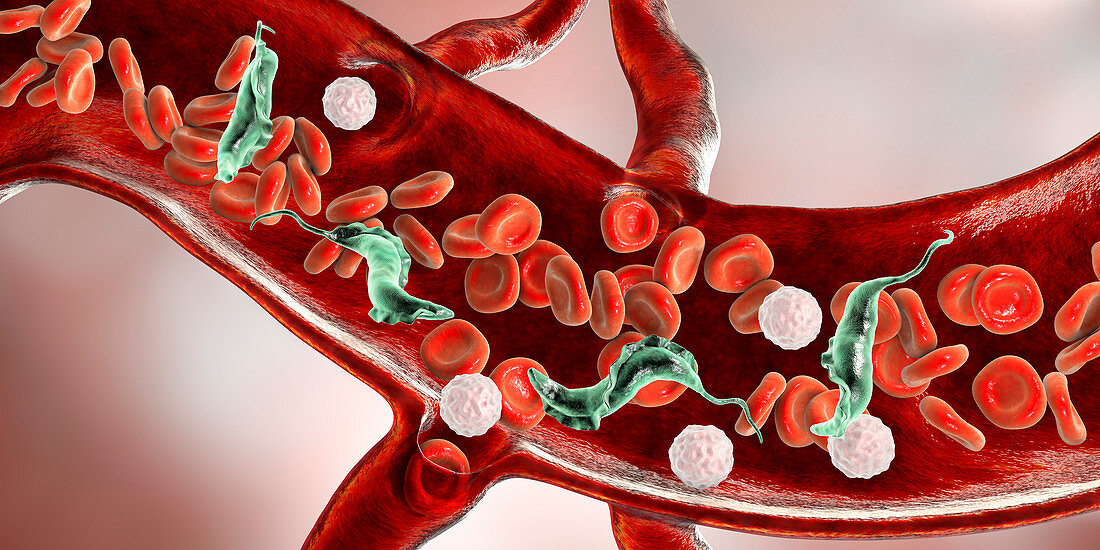Chagas disease parasite, illustration
Bildnummer 12974894

| Computer illustration of the trypanosome (Trypanosoma cruzi) that causes Chagas disease (American trypanosomiasis). It is a vector-borne parasite transmitted by the assassin bug, also known as the kissing bug (order Hemiptera, sub-family Triatominae). These protozoa (single-celled organisms) are in the amastigote form, which lives inside the cells of organs such as the brain, heart and liver, multiplying rapidly. Symptoms of Chagas disease include fever, enlargement of the liver, oesophagus and colon and inflammation of the heart muscle. T. cruzi has identical morphology with the sleeping sickness parasite Trypanosoma brucei. | |
| Lizenzart: | Lizenzfrei |
| Credit: | Science Photo Library / Kon, Kateryna |
| Modell-Rechte: | nicht erforderlich |
| Eigentums-Rechte: | nicht erforderlich |
| Restrictions: | - |
Preise für dieses Bild ab 29 €
Für digitale Nutzung (72 dpi)
ab 29 €
Für Druckauflösung (300 dpi)
ab 300 €
Keywords
- 3 dimensional,
- 3D,
- ansteckend,
- Blutgefäß,
- Blutzellen,
- cgi,
- digital generiert,
- Dreidimensional,
- Erythrozyten,
- Fächer,
- Gesundheit,
- Gesundheitswesen,
- Illustration,
- Infektion,
- Kondition,
- Krankheit,
- Kunstwerk,
- Medizin,
- medizinisch,
- menschlicher Parasit,
- Mikrobiologie,
- mikrobiologisch,
- Niemand,
- Parasit,
- parasitär,
- Pathologie,
- pathologisch,
- Protozoon,
- rote Blutkörperchen,
- Störung,
- weiße Blutkörperchen
